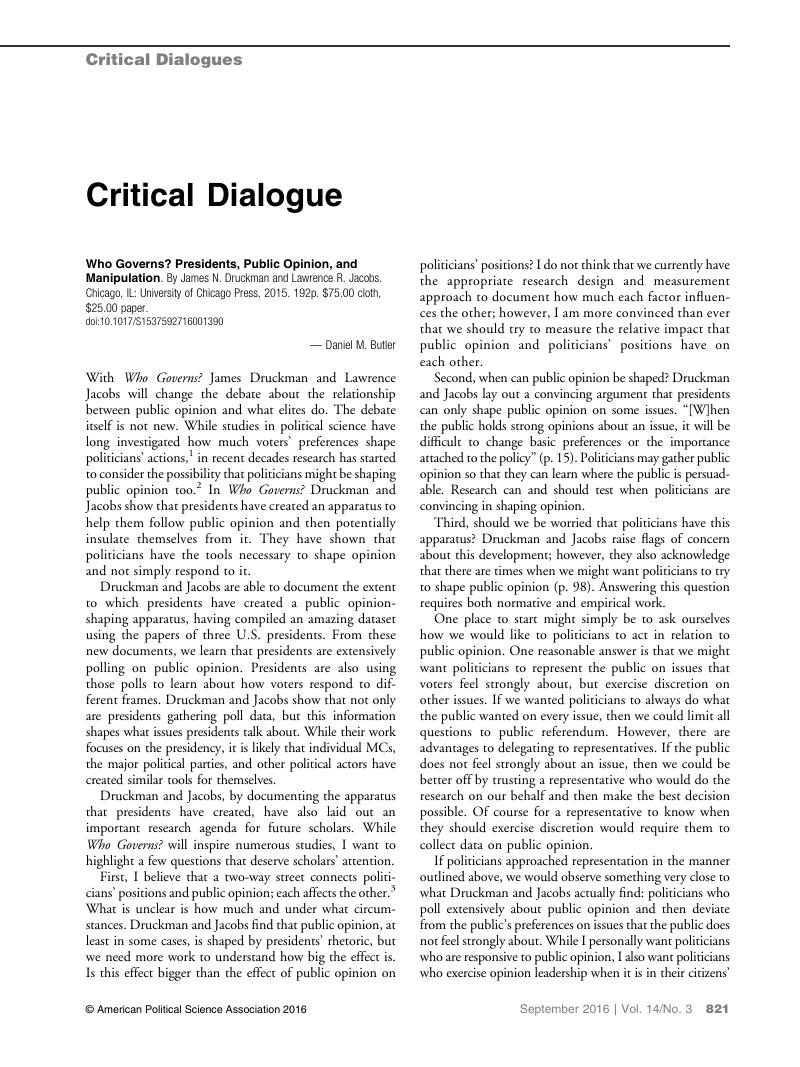No CrossRef data available.
Article contents
Critical Dialogues - Who Governs? Presidents, Public Opinion, and Manipulation. By James N. Druckman and Lawrence R. Jacobs. Chicago, IL: University of Chicago Press, 2015. 192p. $75.00 cloth, $25.00 paper.
Published online by Cambridge University Press: 31 August 2016
Abstract
An abstract is not available for this content so a preview has been provided. Please use the Get access link above for information on how to access this content.

- Type
- Critical Dialogues
- Information
- Copyright
- Copyright © American Political Science Association 2016
References
Broockman, David E. and Butler, Daniel M.. Forthcoming. “The Causal Effects of Elite Position-Taking on Voter Attitudes: Field Experiments with Elite Communication.” American Journal of Political Science.Google Scholar
Butler, Daniel M. and Nickerson, David W.. 2011. “Can Learning Constituency Opinion Affect how Legislators Vote? Results from a Field Experiment.” Quarterly Journal of Political Science 6(1): 55–83.CrossRefGoogle Scholar
Miller, Warren E. and Stokes, Donald E.. 1963. “Constituency Influence in Congress.” American Political Science Review 57(1): 45–56.CrossRefGoogle Scholar
Minozzi, William, Neblo, Michael A., Esterling, Kevin M., & Lazer, David M. J.. 2015 “Field experiment evidence of substantive, attributional, and behavioral persuasion by Members of Congress in online town halls.” Proceedings of the National Academy of Sciences 112(13): 3937–3942.CrossRefGoogle Scholar




